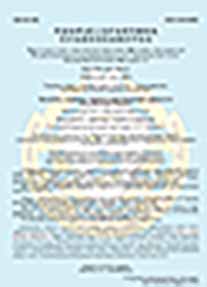Дія у часі судового прецеденту: досвід США
Temporal effect of judicial precedent: USA experience
Author(s): O. V PushniakSubject(s): Law, Constitution, Jurisprudence
Published by: Національний юридичний університет імені Ярослава Мудрого
Keywords: temporal effect of judicial precedent; retroactivity; prospectivity; judicial rulemaking; judicial precedent;
Summary/Abstract: This study focuses on the operation of US case law in time. Currently, the Ukraininan doctrinepays little attention to the experience of the US legal system in this matter. Meanwhile, such experienceis important due to the recognition in Ukrainian doctrine and practice of the sources of law related tothe activities of courts.The author reviews the possible directions of operation in the time of the judicial precedent (inparticular, retroactive, pure prospective and selective prospective effect), traces the history of theirpractical application at both the federal and state levels. The author then turns to in-depth analysis ofthe reasons that led to use a certain direction of operation in time by courts. In particular, the studyfocuses on the change in perception of the functions of the judiciary, in particular the recognition ofjudicial rulemaking as a factor having contributed to the widespread introduction of prospectivity.Therefore, the role of the legal predictability and the protection of legitimate expectations is regardedas the main grounds for the use of prospects.The author has analyzed the critique of prospectivity, which led to a widespread refusal to use itat the federal level (it continues to be used at state level). Attention is drawn to the following argumentsof the critics: prospectivity does not comply with established rules on the role of the judiciary andjudicial rulemaking (according to which setting the operation of legal rules for the future falls withinthe legislative prerogative; at the federal level such an approach is justified by the provision of the USConstitution), undermines the principle of stare decisis, makes the ruling merely a dictum withoutobliging the courts to adhere to it. Under the influence of the latter, courts tend to use selectiveprospectivity instead of pure prospectivity. It has become the object of criticism because of the inequityand the randomness of the distribution of the effects of change. The US Supreme Court on this basishas terminated its use as well.The author states that possibility of prospectivity remains a complex dilemma, far from a finalsolution. It reveals a conflict between such key values as legal certainty, equality, fairness, raises thequestion of the separation of powers. In addition, the problem reflects the issues of the nature of caselaw and the role of a judge in the functioning of the law. Despite the shift of American jurisprudencefrom the declaratory theory of judicial precedent, the latter continues to exist in the form of traditionalretroactivity, which remains the main or the only form of the temporal effect of precedents in theUnited States.
Journal: Теорія і практика правознавства
- Issue Year: 1/2019
- Issue No: 15
- Page Range: 1-25
- Page Count: 25
- Language: Ukrainian

